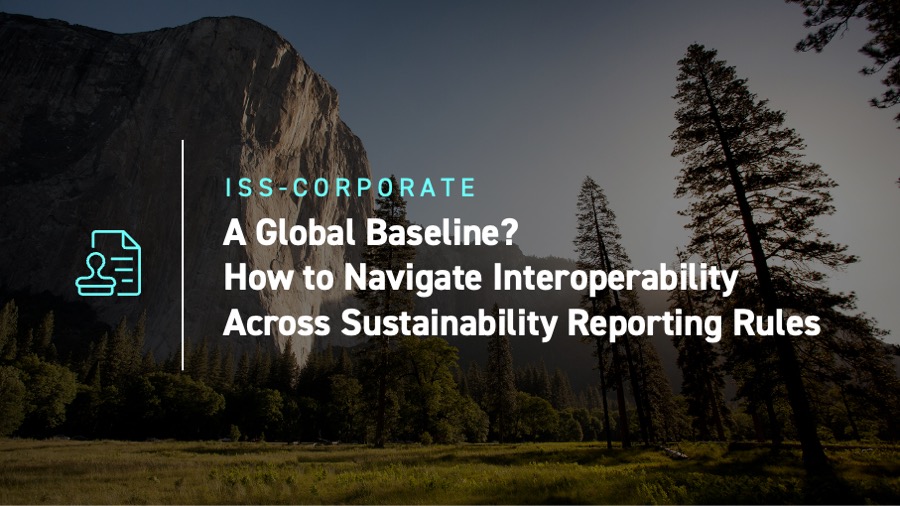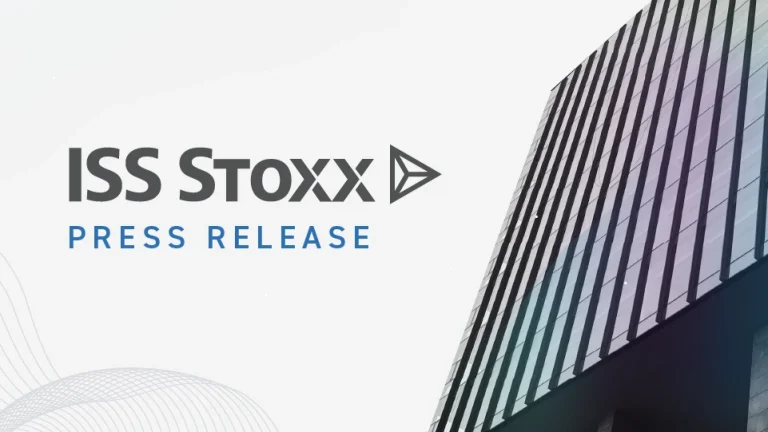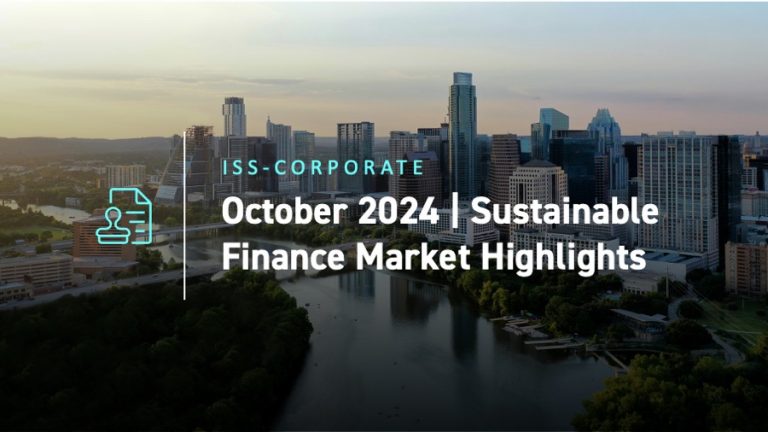Below is an excerpt from ISS-Corporate’s recently released article “A Global Baseline? How to Navigate Interoperability Across Sustainability Reporting Rules.” The full article is available on the ISS-Corporate online library.
Sustainability reporting rules developed by the International Sustainability Standards Board (ISSB) for the IFRS Sustainability Disclosure Standards are set to be adopted across jurisdictions in the next few years, establishing a global baseline for corporate disclosures. This represents an opportunity for companies to harmonize their sustainability data in a complex regulatory environment. Adopting these new standards as early as possible and understanding their interoperability with other regulations are crucial considerations for sustainability leaders.
Adoption pathways will vary across jurisdictions, from full immediate to partial or phased adoption. Climate disclosures have been designated the highest priority by the ISSB and national regulators globally. The ISSB will take over responsibility this year for monitoring implementation of the recommendations of the Task Force on Climate-Related Disclosures (TCFD), which have defined climate reporting globally since the release of their guidelines in 2017. Gaining an early understanding of the further evolution of climate reporting under the TCFD-based IFRS S2 is critical for companies.
Companies already reporting in line with the TCFD recommendations will have to enhance their climate disclosures to account for ISSB’s requirement, with more detailed information about material climate-related risks, transition plans and resiliency, as well as industry-based metrics and mandatory Scope 3 GHG emissions reporting.
By:
Jacob McKeeman, Senior Associate, Sustainability Regulations Specialist, ISS-Corporate
Kieran Woodsworth, Associate, Sustainability Advisor, ISS-Corporate




